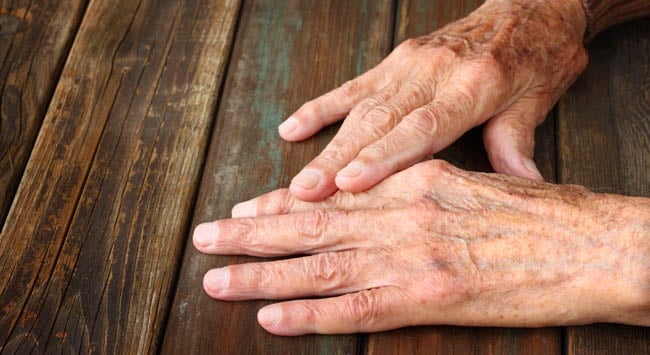Your skin naturally changes as you get older, partly from lifestyle factors, and partly from the aging process itself. While most skin changes are normal, some may indicate a deeper health problem. Therefore, it's important to know what you're looking at. Here are some common skin changes in the elderly.
Lifestyle and environmental factors cause some of the most common skin changes. Sun exposure and smoking are two of the primary factors that contribute to the aging of the skin. Some of the changes you might notice include:
Common Skin Changes
-
Wrinkles: These are the most visible signs of aging. Whether they're fine surface lines or deep furrows, wrinkles are caused mainly by sun exposure, smoking, heredity, and skin type.
-
Laugh lines: Also known as worry lines, these facial movement lines become more visible in your 40s and 50s as your skin loses its elasticity.
-
Dry, itching skin: This is a common problem among the elderly, usually due to the loss of oil glands as you age. However, it can sometimes be the sign of a more serious disease.
-
Skin cancer: The most common cause of skin cancer is UV radiation from sun exposure. According to the Skin Cancer Foundation, 1 in 5 Americans will develop skin cancer in the course of their lifetime. Check with your dermatologist if you notice new skin growth or an existing mole that changes size or shape.
-
Age spots: These brown patches appear during the adult years, usually on parts of the body exposed to the sun (like your face, hands, and forearms).
-
Bedsores: These skin ulcers (also known as pressure ulcers) develop from lying in bed or sitting over long periods of time, and are fairly common in elderly people who have problems moving on their own. They can be prevented by frequent rotation or re-positioning.
-
Surface changes: Including rougher skin, lesions and benign tumors.
-
Slack skin: Skin that hangs loosely due to the loss of elastic tissue as you age.
-
Transparent skin: Caused by the thinning of the epidermis (outer layer of the skin).
-
Fragile skin: Caused by a flattening of the area where the epidermis and dermis (inner layer) come together.
-
Bruised skin: Skin is more susceptible to bruising due to thinning blood vessel walls in the dermis.
Maintaining Healthy Skin
Treat Injuries
Properly treating skin injuries will go a long way to keeping a senior happy, healthy, and active. It is now recommended to keep wounds covered until they heal completely to prevent bacteria from entering the wound. If the wound becomes inflamed, feverish, or has any yellow or discharge, see a doctor immediately.
Stay Hydrated
It is important to drink plenty of water throughout the day, avoid caffeine, and use a humidifier. The best time to apply moisturizer is immediately following a shower or bath. Pat the skin dry (don’t rub it), and apply lotion or cream while the skin is still moist to lock moisture in.
Eat Healthily
Poor diet, hygiene, and exposure to sunlight can also significantly age skin as time goes by. This decreases the skin's ability to fight off infection and properly heal itself. However, providing the body with ample vitamins and nutrients, hydration, and hygiene can help prevent harmful substances or damage of the skin.
Wear the Right Clothing
Pick clothes that completely cover your body. By covering your skin, you keep it safe from UV rays. Longer shirts and pants can also help keep away aging-related chills. Hats are absolutely essential. Try to find a wide-brimmed hat that fits you. Straw hats are the best option, here. Not only are they wide, but they're much lighter than a heavy leather cowboy hat or something similar.
When choosing particular colors or fabrics, try to pick lighter cotton. Cotton is cool to the touch and won't trap a lot of heat. You should also make sure to keep your clothes rather loose, light, and light-colored. Looser clothes will help your skin breathe and stave off heat stroke. Light-colored fabrics will reflect sun away from your body and help keep you cooler.
Consult Your Doctor
As you age, talking to your physician can help to educate you more on the specific needs of your body and even assure you that you are on the right path to caring for your skin through this natural process.
If you have any concerns or questions about skin changes or about any other age-related issues, we're here to help. At Caring Senior Service, our expert staff is comprised of extremely knowledgeable, friendly, and trusted professionals who take pride in helping your loved one manage their daily activities. Contact a Caring team near you today to learn more!

